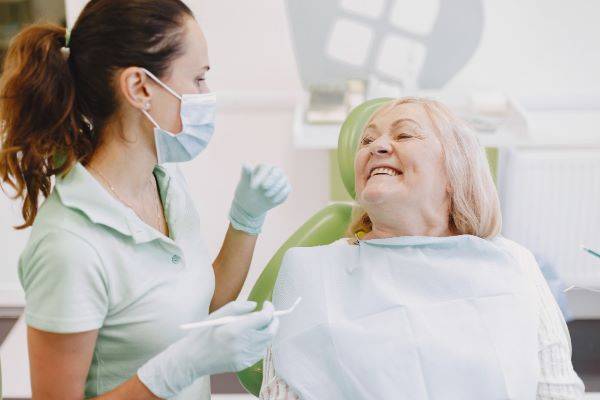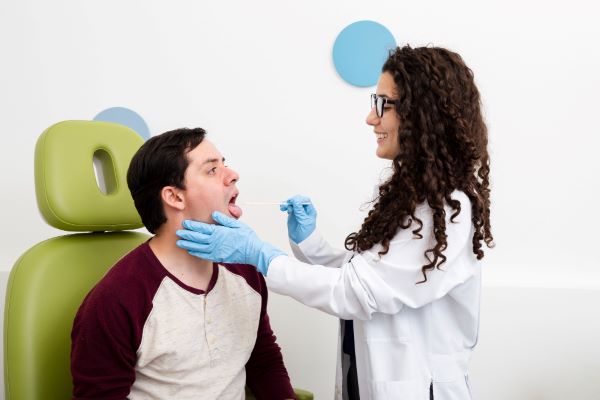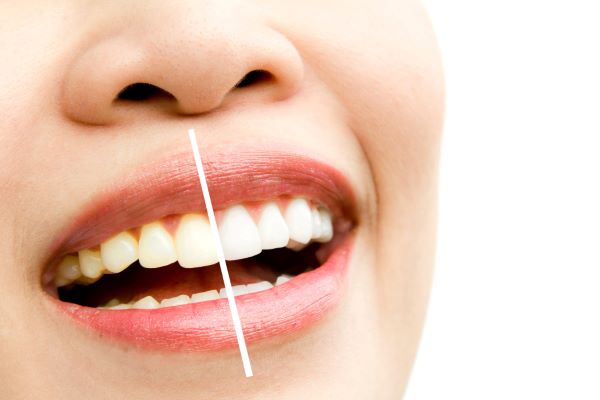As we age, maintaining good oral health becomes even more important. Senior dental care requires a special approach to cater to the unique needs of older adults. In this blog, we will discuss dentistry for seniors, providing you with essential tips and tricks to keep your smile healthy and radiant.
At Dr. Beena George Dentistry, we believe that a healthy smile is a reflection of overall wellness. So, whether you are in your golden age or a caregiver looking for guidance, this read is for you. We have compiled some practical suggestions to make senior dental care easier and more effective.
The Importance of Senior Dentistry
Maintaining good dental health is crucial for seniors as it directly impacts their overall well-being. Poor oral health can lead to various health problems, including heart disease, diabetes, and respiratory infections. Additionally, dental issues can affect seniors’ ability to eat and speak properly, leading to nutritional deficiencies and decreased social interaction.
To ensure optimal dental health, seniors should prioritize routine dental check-ups and maintain consistent oral hygiene. By taking these proactive steps, seniors can prevent dental problems and maintain healthy smiles well into their golden years.
Common Dental Issues in Seniors
As we age, our teeth and gums become more vulnerable to certain dental conditions. Some of the most common dental issues experienced by seniors include:
1. Tooth decay
Though it can happen to any age group, Seniors are prone to tooth decay due to various factors. Such as dry mouth caused by medication, receding gums, and a higher likelihood of having fillings or crowns.
2. Gum disease
Periodontal disease affects a significant number of seniors and can lead to tooth loss if left untreated. Regular dental cleanings and proper oral hygiene can help prevent gum disease.
3. Tooth sensitivity
Aging can result in the wearing down of enamel, leading to increased tooth sensitivity to hot, cold, or sweet foods and beverages.
4. Dry mouth
Many seniors experience dry mouth due to medication side effects or certain medical conditions. Dry mouth can contribute to tooth decay and gum disease, so it’s important to stay hydrated and discuss any concerns with your dentist.
Understanding these common dental issues can help seniors take proactive steps to prevent or manage them effectively.
Maintenance Tips on Dentistry for Seniors
To maintain good oral health as a senior, you must never miss your teeth cleaning regime in any condition. Here are some essential tips to help you maintain a healthy smile:
a). Brush and floss regularly
Brush your teeth at least twice a day using a soft-bristled toothbrush and fluoride toothpaste. Don’t forget to floss daily to remove plaque and food particles from between your teeth.
b). Use mouthwash
Incorporate an antimicrobial mouthwash into your oral hygiene routine to help reduce bacteria and freshen your breath.
c). Stay hydrated
Drink plenty of water throughout the day to maintain saliva flow and prevent dry mouth.
d). Eat a balanced diet
Opt for a diet rich in fruits, vegetables, whole grains, and lean proteins. Limit sugary and acidic foods and beverages, as they can contribute to tooth decay.
e). Quit smoking
Smoking increases the risk of gum disease, tooth loss, and oral cancer. If you smoke, consider quitting to improve your oral and overall health.
Remember, maintaining good oral health is a lifelong commitment, and it’s never too late to start taking care of your smile.
Go-to Oral Hygiene Practices for Seniors
1. Choose the right toothbrush
Opt for a soft-bristled toothbrush with a small head to clean your teeth and gums gently. Consider an electric toothbrush if you have dexterity issues.
2. Use fluoride toothpaste
Use fluoride toothpaste to strengthen your tooth enamel and prevent tooth decay.
3. Clean dentures properly
If you wear dentures, remove and clean them daily to prevent gum irritation and bacterial growth. Follow your dentist’s instructions for denture care.
4. Consider interdental cleaning
Use interdental brushes or floss picks to clean between your teeth and along the gumline if traditional flossing is challenging.
5. Rinse your mouth after meals
Rinse your mouth with water or an antimicrobial mouthwash after meals to remove food particles and reduce the risk of plaque buildup.
Dear Seniors! Don’t compromise on your teeth. Cuisines are always evolving. And beauty with age is something beyond awesome!
The Impact of Age on Dental Health
One of the key factors that contribute to age-related dental changes is the natural wear and tear our teeth experience over time. Enamel, the protective outer layer of our teeth, can gradually erode, leading to increased tooth sensitivity and vulnerability to decay. Receding gums are also common in seniors, exposing the tooth roots and making them more susceptible to cavities.
Furthermore, age-related health conditions such as diabetes and arthritis can affect oral health. Diabetes, for example, increases the risk of gum disease, while arthritis may make it challenging to brush and floss effectively.
Worry-free Dentistry for Seniors
Seniors have a range of dental treatment options available to address age-related dental issues and restore their oral health. Read on—
– Fillings and crowns
If tooth decay is detected, a dental filling or crown may be recommended to restore the tooth’s structure and prevent further damage.
– Dental implants
Dental implants are a popular choice for seniors who have lost one or more teeth. They provide a stable foundation for replacement teeth, allowing seniors to enjoy improved chewing ability and aesthetics.
– Dentures
Dentures are removable appliances that replace missing teeth and surrounding tissue. They can be either full dentures (for those missing all their teeth) or partial dentures (for those missing only a few teeth).
– Root canal therapy
If the dental pulp becomes infected or inflamed, a root canal treatment may be necessary to save the tooth and alleviate pain.
– Periodontal treatments
Seniors with gum disease may require scaling and root planing, antibiotic therapy, or other periodontal treatments to manage the condition and prevent tooth loss.
Your dentist will evaluate your specific dental needs and recommend the most appropriate treatment options for you.
The role of nutrition in senior dental health
Are your teeth getting enough Nutrition?
Proper nutrition plays a vital role in maintaining good oral health, especially for seniors. A balanced diet provides the necessary nutrients to support healthy teeth and gums, while a poor diet can increase the risk of dental problems. Here’s what you must get—
1. Calcium
Calcium is essential for strong teeth and bones. Include dairy products, leafy greens, and fortified foods in your diet to ensure an adequate intake of calcium.
2. Vitamin D
Vitamin D helps the body absorb calcium and maintain bone density. Get regular sun exposure and consume foods rich in vitamin D, such as fatty fish and fortified dairy products. Do You Morning Walk?!
3. Vitamin C
Vitamin C is crucial for gum health and collagen production. Include citrus fruits, berries, and vegetables like broccoli and bell peppers in your diet to boost your vitamin C intake.
4. Water
Staying hydrated is essential for maintaining saliva flow, which helps rinse away food particles and neutralize acids that can cause tooth decay.
Dentistry for seniors with Limited Mobility
Some elderly people may face difficulty in proper dental care. However, there are dental care options available to accommodate their needs. Here are some solutions for seniors with limited mobility:
1. Electric toothbrushes
2. Water flossers
3. Assistive devices
4. In-home dental care
There is something for everyone!
To Your Bright Smile!
Take charge of your oral health and continue to smile confidently in your golden years. If you are into serious dental problems, let us help. Dr. Beena George Dentistry is a walk-in dental clinic in Mississauga. We are always charged for your emergency dental needs.



